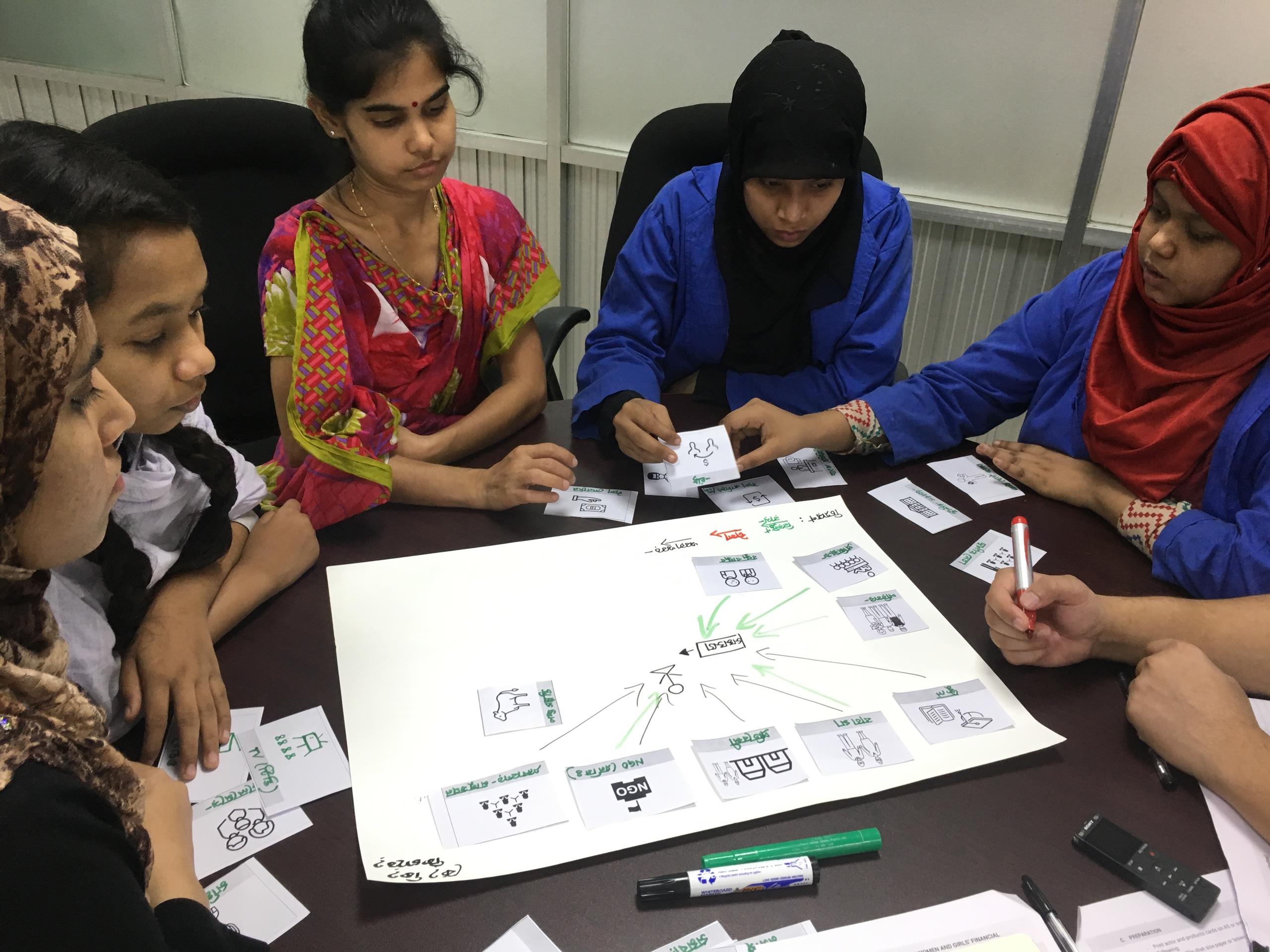SUPPLY-SIDE CONSTRAINT #1
FSPs do not know about the "women's market" which can fuel biased / prejudiced attitudes of FSF staff: FSPs do not have up-to-date data on the market potential of women.

UNCDF is working in Bangladesh with the goal to improve women (aged 25+) and girls’ (aged between 10-24) awareness of, access to, use of and control over appropriate financial products and services responsibly provided by diverse and sustainable service providers in a well-regulated environment.
Further, to strengthen the enabling environment and the socio-cultural context for greater access and agency for women and girls. This is intended to contribute to more inclusive financial markets that drive women’s and girls' economic empowerment and participation in the country.
To deliver on this vision, UNCDF will be working directly and through partners to address financial inclusion supply-side, demand-side and enabling environment constraints and enablers, and cross cutting socio-cultural context, adapted to women’s life cycle needs and economic roles.
UNCDF is operationalising its global strategy on women’s economic participation and empowerment at country level in Bangladesh through implementing strategic interventions to deliver on three country-level objectives:
Bangladeshi women and girls face barriers in the supply of and in their demand for financial products and services, the wider enabling environment as well as in their socio-cultural context.
On the supply side, women are disadvantaged compared to men in their access to retail banking and mobile financial services. Women’s more limited time and mobility due to socio-cultural norms restricts access to brick-and-mortar bank branches.
Meanwhile, although growth in mobile/networks have expanded accessibility across the country, more than 95% of agents are male which raises security concerns for women due to cultural factors which can restrict women engaging with unrelated males. On the demand side, women’s phone ownership is considerably lower than men’s (48% compared to 79%), in part driven by concerns of gender-based harassment including other factors. Poor digital literacy skills are also a barrier for women’s access to and usage of mobile financial services (66% of women rank “low” in digital literacy, compared to 24% of men).
66% of women
rank “low” in digital literacy
In terms of the enabling environment, a lack of standardization of access requirements set by the central bank for uncollateralized retail bank loans has led to discretionary interpretation on the part of banks, and is restricting access to credit specifically for the economic segment of women-entrepreneurs. Barriers such as these, collectively limit women’s access, usage and agency over financial products and services in ways that constrain their economic empowerment. Consequently, women remain disproportionately excluded from the formal financial system, with a gender gap of 10% in registered financial service use in 2015.


Beth Porter
Policy Advisor, Financial Inclusion
Katherine Miles
Consultant, Financial Inclusion
Md. Ashraful Alam
Country Project Coordinator